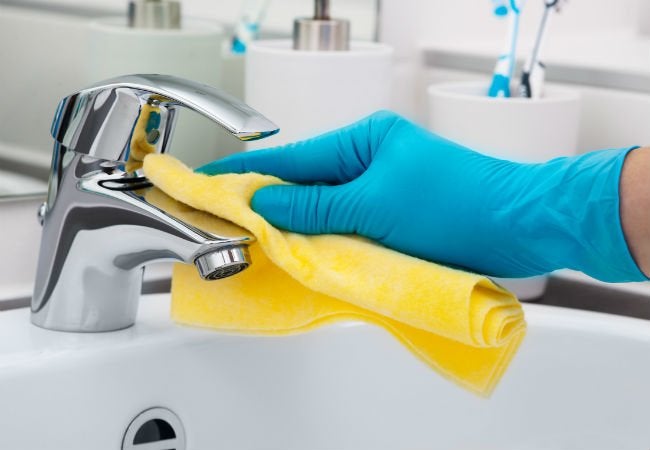Hard water stains on glass surfaces can be frustrating and unsightly, making it important to understand whether or not these stains are permanent. Hard water stains are caused by mineral deposits that build up on glass surfaces over time, and can be difficult to remove without the proper cleaning techniques. However, the good news is that hard water stains are not permanent, and with the right tools and techniques, you can effectively remove them from your glass surfaces. You can also remove hard water stains using a steam cleaner.
The first thing to understand about hard water stains is that they are caused by a buildup of mineral deposits that can be removed with the right cleaning solution. This means that if you have hard water stains on your glass surfaces, they can be removed with the right cleaning techniques. Some of the most common cleaning techniques include using a specialized hard water stain remover, a vinegar and water solution, or a steam cleaner.
What is the easiest way to Remove Hard Water Stains?
When it comes to removing hard water stains, it’s important to be patient and persistent. Depending on the age and severity of the stain, it may take multiple cleaning sessions to remove the stain completely. It’s also important to follow the tips mentioned in previous articles to achieve the best results, such as using the right cleaning solution and using the steam cleaner at the right pressure level.
One thing to keep in mind is that some hard water stains may be more difficult to remove than others. This can be due to factors such as the type of glass surface, the age of the stain, and the mineral content of the water causing the stain. For example, if you have hard water stains on a textured glass surface, it may be more difficult to remove the stain completely, as the mineral deposits may have become ingrained in the surface.
Removing hard water stains can be a frustrating and time-consuming task, but with the right tools and techniques, it can be done easily. There are several methods for removing hard water stains, but some are easier and more effective than others. Here are a few of the easiest ways to remove hard water stains from your glass surfaces.
Use a specialized hard water stain remover –
One of the easiest and most effective ways to remove hard water stains is by using a specialized hard water stain remover. These products are designed specifically for removing mineral deposits, and can effectively dissolve the stains without damaging the glass surface. Simply apply the solution to the stain, let it sit for a few minutes, and then wipe it away.
Use a vinegar and water solution –
Another easy way to remove hard water stains is by using a vinegar and water solution. This method is especially effective for removing smaller, newer stains. Simply mix equal parts of white vinegar and water, and apply the solution to the stain. Let it sit for a few minutes, and then wipe it away with a clean cloth.
Use a steam cleaner –
A steam cleaner can also be an effective way to remove hard water stains, especially if you have larger or more stubborn stains. This method works by using the high-temperature steam to dissolve the mineral deposits, making it easier to wipe away. Make sure to follow the manufacturer’s instructions when using a steam cleaner to remove hard water stains.
It’s important to remember that the easiest way to remove hard water stains may vary depending on the severity of the stain and the type of glass surface. In some cases, a combination of these methods may be the most effective way to remove the stains.
In conclusion, hard water stains on glass surfaces are not permanent, and with the right tools and techniques, you can effectively remove them. It’s important to be patient and persistent when removing these stains, and to follow the best practices for removing hard water stains. With the right approach, you can restore your glass surfaces to their original, crystal-clear appearance, and keep hard water stains from becoming a permanent problem.


